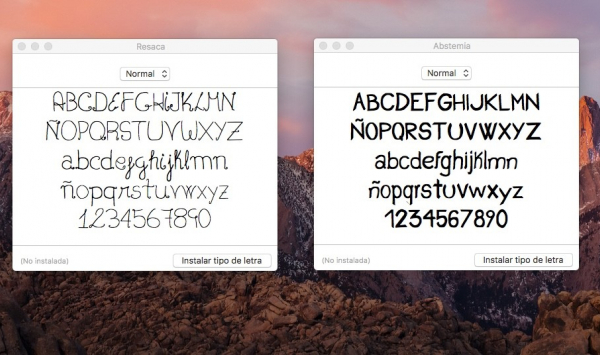- 14th EDITION 2022 / 2023
- 13th EDITION 2021 / 2022
- 12th EDITION 2020 / 2021
- 11th EDITION 2019 / 2020
- 10th EDITION 2018 / 2019
- 9th EDITION 2017 / 2018
- 8th EDITION 2016 / 2017
- 7th EDITION 2015 / 2016
- 6th EDITION 2014 / 2015
- 5th EDITION 2013 / 2014
- 4th EDITION 2012 / 2013
- 3rd EDITION 2011 / 2012
- 2nd EDITION 2010 / 2011
- 1st EDITION 2009 / 2010
Ricard Trigo IN RESiDENCE at the School Milà i Fontanals
Drunk Arial & PlexiApp
Drunk Arial
2017
Typography
PlexiApp
2017
Web app
Digital print on plexiglass (variable dimensions)
PlexiApp is a project that, using a web app, explores two areas of reception that create tension in concepts that range from the randomness and subjectivity of what is human to what is not human. Such processes are key elements in a work of an artist who studies materials produced by the secondary sections of leading global companies in the field of technology and scientific development, and which produce materials that are used as supports for representation in the visual arts (Vivak®, plexiglass and ABS plastic for 3D printing). This is an exercise that entails, not only present these materials as a medium, but placing them in the foreground and subjecting them to the rhetoric of artistic display.
Based on this conceptual framework, using processes focused on combinations, chance and probability, this mobile app generates a unique image from a menu equipped with thirty buttons that enable the user to create compound images formed by from two to thirty combinations (degraded through the selection of colours taken from the plexiglass plaque). This enables users to build up the number of images they choose. Once the image is entered into the database, the application will select, at random, an image from among all those entered by users to be produced every time the project is presented publicly, following precisely the result of the digital image selected.
Presentation
Presentation of PlexiApp at IES Milà i Fontanals: Wednesday, 7 June 2017, at 4.30 pm
After considerable thought and discussion, we realised that it made sense to present the works at the place where we had worked on them. The artist and a group of pupils turned this presentation into a kind of guided tour. This tour comprised three spaces: the lobby, which served as the venue for introduction and welcome; the library, which contained all the work relating to the typographies; and the dining room, where the web app was installed, along with the piece it generated and tables containing documents on the process.

